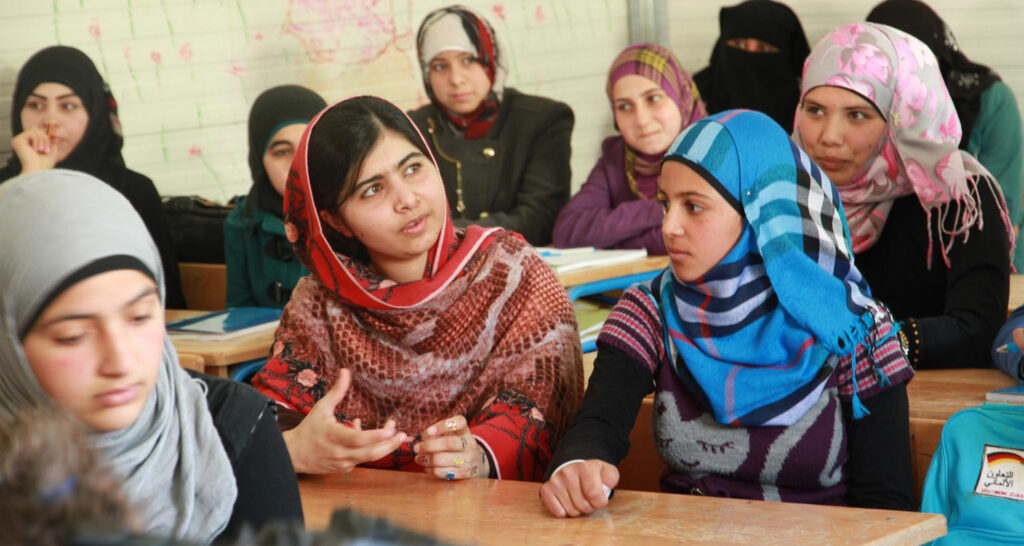In our collective understanding, education has long been synonymous with classrooms, textbooks, and exams. It’s a journey that typically begins in early childhood, guided by structured lessons and academic pursuits. Yet, as we delve into the realms of personal development, we unearth a profound truth – education is not confined to the boundaries of formal learning. It is, in essence, a dynamic force that shapes not only the intellect but also the very fabric of our character.
Traditional View of Education:
The conventional perspective sees education as the acquisition of knowledge and skills within the structured environment of schools and universities. It follows a linear trajectory, progressing from elementary to higher education, with a primary focus on academic achievement and intellectual growth.
Beyond Academics to Personal Development:
However, this narrative is but a fraction of the broader canvas of education. As we explore the uncharted territories of personal development, we find that education is a holistic journey that extends far beyond the classroom walls. It intertwines with life experiences, interpersonal interactions, and self-discovery. Education becomes a transformative force that molds not only what we know but, more importantly, who we are.
Education and Personal Growth

At its core, education and personal growth share a symbiotic relationship, each influencing and enhancing the other in a dance of continuous development. Here, we unravel the profound ways in which education catalyzes personal growth, forging a path toward self-discovery, resilience, and the nurturing of character.
The Catalyst for Personal Growth:
Education, far from being a passive receptacle of facts, becomes an active catalyst for personal evolution. It is the crucible where ideas are forged, challenges are faced, and perspectives are broadened. Academic pursuits, when approached with curiosity and commitment, become a journey of self-exploration.
Instances of Learning Experiences and Character Development:
Consider the classroom as a microcosm of life, where learning experiences extend beyond textbooks. It is in collaborative projects, spirited debates, and problem-solving endeavors that individuals discover not only the subject matter but also their capacities. These instances become the crucible for character development – the refining fire that molds qualities like resilience, adaptability, and empathy.
Think of the student who, faced with a challenging assignment, learns the value of perseverance and time management. Or the aspiring scientist who, through the process of experimentation, cultivates not just scientific acumen but also resilience in the face of setbacks. These are the moments where education transcends the theoretical and steps into the realm of personal growth.
Critical Thinking

Critical thinking, often hailed as the cornerstone of intellectual prowess, is a cognitive skill that goes beyond rote memorization and embraces the art of thoughtful analysis and reasoned judgment.
Defining Critical Thinking and Its Significance:
At its core, critical thinking is the ability to assess information objectively, analyze it thoroughly, and form well-reasoned conclusions. It involves the skill of questioning assumptions, considering alternative perspectives, and approaching challenges with an open mind. Significantly, critical thinking is not confined to academic pursuits; it permeates every facet of life, guiding decision-making and problem-solving in both personal and professional realms.
In the realm of personal development, critical thinking acts as a compass, guiding individuals toward informed choices and fostering intellectual autonomy. It equips minds with the tools to navigate a world rife with complexities, uncertainties, and a myriad of perspectives. Through the lens of critical thinking, individuals gain the capacity to approach challenges not as obstacles but as opportunities for growth.
Educational Activities as Catalysts for Critical Thinking Skills:
Educational activities, ranging from classroom discussions to problem-solving exercises, become fertile grounds for the cultivation of critical thinking skills. Here, learners engage with content beyond surface-level understanding, delving into the why and how of concepts. Discussions prompt the articulation of ideas, requiring individuals to defend their perspectives and consider alternative viewpoints.
Problem-Solving Abilities

Education serves as an incubator for the development of problem-solving abilities, empowering individuals with the cognitive tools to navigate challenges and contribute meaningfully to the world.
The Essence of Problem-Solving:
Problem-solving is more than a practical skill; it’s a mindset that approaches challenges as opportunities for growth. It involves the systematic identification of issues, the exploration of potential solutions, and the application of reasoned judgment to choose the most effective course of action. Beyond its utilitarian applications, problem-solving is a dynamic cognitive process that fosters adaptability, resilience, and a proactive approach to life’s complexities.
Educational Opportunities for Skill Development:
Education, with its diverse array of subjects, assignments, and projects, presents a myriad of opportunities to cultivate problem-solving skills. Consider mathematics, where students grapple with complex equations or scientific experiments that demand innovative approaches to hypothesis testing. These academic challenges are not merely hurdles to overcome but serve as crucibles for honing the art of problem-solving.
Real-World Application of Academic Challenges:
The beauty of education lies in its ability to bridge the gap between theory and practice. Academic challenges, whether it’s deciphering a complex literary text or solving an intricate physics problem, mirror the problem-solving scenarios individuals encounter beyond the classroom. These challenges not only refine cognitive abilities but also instill a mindset that views obstacles not as impediments but as puzzles waiting to be solved.
Decision-Making Skills

Education, as a cornerstone of personal development, extends its influence beyond the acquisition of knowledge to the cultivation of sound decision-making skills.
The Crucial Role of Education in Decision-Making:
Decision-making is an intricate dance between information, values, and foresight. Education acts as a guiding force, providing individuals with the intellectual tools to assess situations, weigh alternatives, and make choices aligned with their goals and values. This skill, honed within the educational sphere, becomes a compass that navigates the complexities of personal and professional life.
Anecdotes and Case Studies:
Consider a student faced with choosing a major, a decision that holds implications for their future career and personal fulfillment. Through research, guidance from mentors, and introspection facilitated by education, the student is equipped to make a decision aligned with their passions and long-term aspirations. This showcases the transformative influence of education in shaping choices that resonate with individual values.
Similarly, in professional settings, individuals draw upon the decision-making skills honed through educational experiences. A business executive, for instance, might leverage strategic thinking learned in management courses to navigate a complex market landscape. These real-world scenarios underscore the tangible impact of education on decision-making, echoing the sentiment that the skills developed within academia reverberate into the fabric of life choices.
The Everlasting Impact

Education is not confined to the walls of institutions; its impact transcends graduation, echoing throughout an individual’s lifetime. So, let’s delve into the enduring legacy of education, exploring how the skills honed during academic pursuits continue to shape individuals well into their post-graduation years.
Skills That Withstand the Test of Time:
The skills cultivated during education are not ephemeral; they are enduring assets that accompany individuals as they navigate the diverse landscapes of life. Whether it’s critical thinking, problem-solving, or decision-making, these skills become integral components of one’s cognitive toolkit. Post-graduation, individuals find themselves drawing upon these acquired competencies in various personal and professional scenarios.
Lifelong Learning: A Continuation of the Educational Journey:
The concept of lifelong learning underscores the idea that education is not a finite process but an ongoing journey. Beyond formal education, individuals continue to engage with new ideas, evolving technologies, and emerging trends. This commitment to learning becomes a conduit for perpetual personal development.
Personal Development as a Continuous Odyssey:
Post-education reflections reveal that personal development is not a destination but a continuous odyssey. The skills acquired during formal education become the compass that guides individuals as they encounter new challenges, seize opportunities, and evolve as multifaceted beings. This enduring impact serves as a testament to the transformative power of education in shaping not only careers but entire lifetimes.
In conclusion, education stands as a dynamic force that transcends traditional boundaries, leaving an indelible mark on personal development. As we’ve explored its multifaceted impact—from fostering critical thinking to nurturing decision-making skills—education emerges not just as an academic pursuit but as a lifelong journey. The skills honed within classrooms become enduring companions, guiding individuals through the complexities of professional endeavors and personal choices.
Embracing the spirit of lifelong learning ensures that education’s transformative influence persists, evolving with each chapter of life. In this perpetual odyssey, education emerges as a catalyst for continuous growth, empowering individuals to navigate the ever-changing landscapes of their personal and professional realms.
